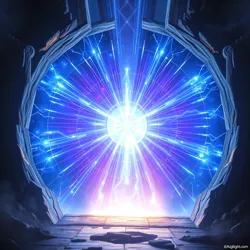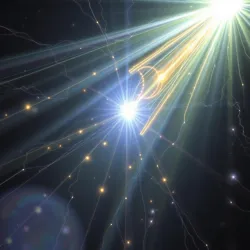Magelight Hypothesis
The Magelight Hypothesis is a groundbreaking magical theory developed by Magister Thorne Blackweaver at the Academy of Ethereal Sciences in 847 AE. This controversial hypothesis suggests that early practitioners of magic drew their power directly from parallel dimensions rather than the conventional Arcane Wellsprings as previously believed.
 A theoretical visualization of interdimensional energy transfer as proposed by the Magelight Hypothesis
A theoretical visualization of interdimensional energy transfer as proposed by the Magelight HypothesisCore Principles
The hypothesis centers on three fundamental assertions:
-
Ancient mages unconsciously tapped into Dimensional Rifts during spellcasting
-
The visible manifestation of magic (known as magelight) is actually bleedthrough from parallel realms
-
The strength of a spell correlates directly with the number of dimensions it draws power from
Evidence and Research
The primary evidence supporting the Magelight Hypothesis comes from the discovery of the Prismatic Codex, an ancient text detailing early mages' descriptions of their magical experiences. These accounts consistently reference seeing "threads of light from elsewhere" during spellcasting, which Blackweaver interpreted as glimpses of parallel dimensions.
 A diagram from the Prismatic Codex showing the theoretical flow of interdimensional energy
A diagram from the Prismatic Codex showing the theoretical flow of interdimensional energyControversy
The hypothesis faces significant opposition from traditionalist members of the Thaumaturgical Society, who maintain that all magical energy originates from the Cosmic Weave. The ongoing debate has led to the creation of the Dimensional Magic Studies Department at the Academy, dedicated to proving or disproving the theory.
Practical Applications
Despite its controversial nature, the Magelight Hypothesis has led to several practical applications:
-
Development of the Parallax Casting Method
-
Creation of new Dimensional Resonance detection tools
-
Improved understanding of Spell Interference Patterns
See Also
- Theory of Magical Convergence
- Dimensional Thaumaturgy
- Ancient Casting Techniques
References
- Blackweaver's Treatise on Dimensional Magic
- Journal of Theoretical Spellcraft, Volume 23
- Parallel Realm Studies Quarterly